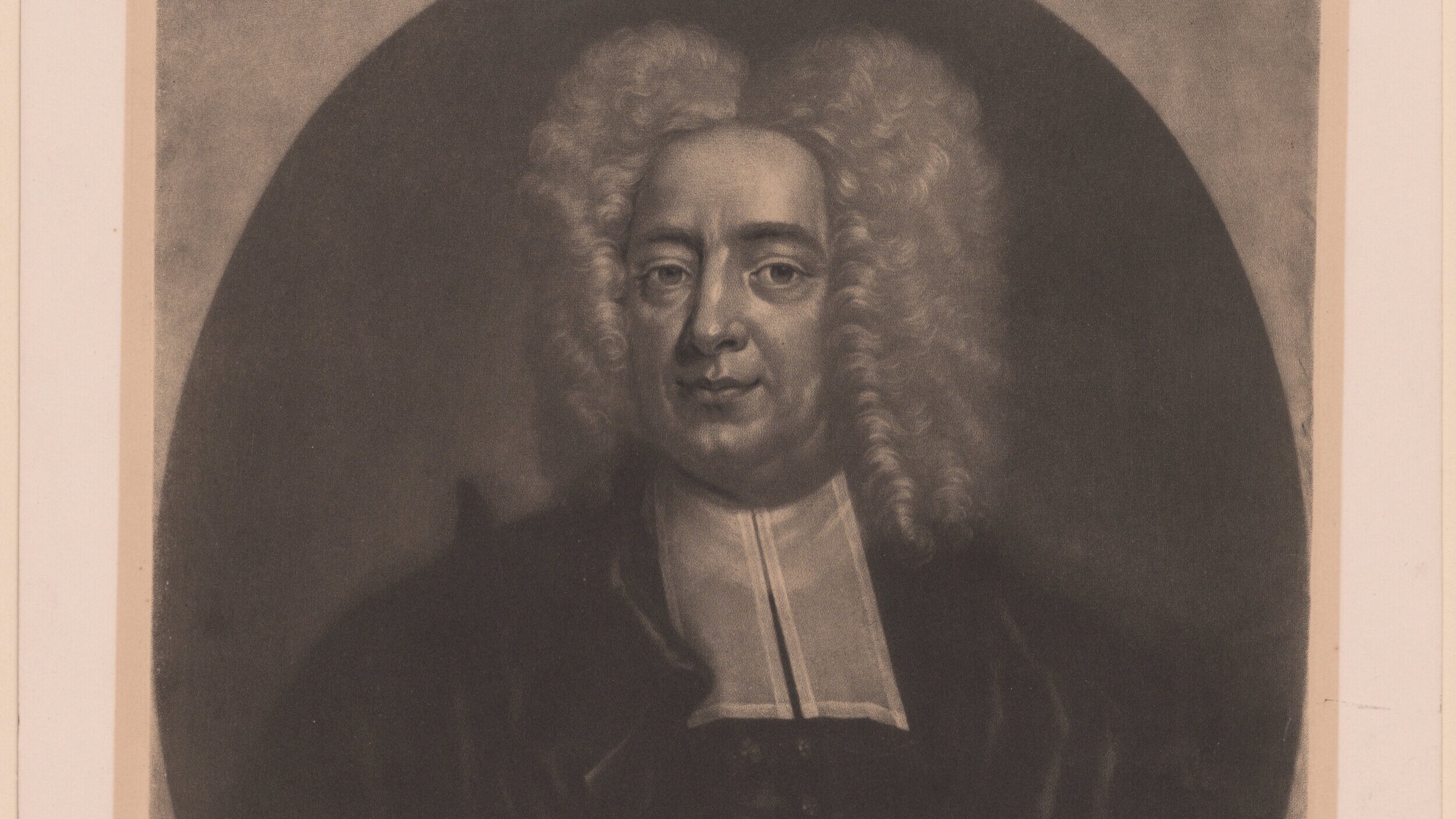Of One Blood? Cotton Mather’s Christian Slavery
For Cotton Mather, slave owners undertook “the noblest Work” in converting enslaved Africans to Christianity. Credit: Wiki Commons
“It is come to pass by the Providence of God, without which there comes nothing to pass, that Poor Negroes are cast under your Government and Protection,” the Rev. Cotton Mather wrote to fellow New England slave owners in his 1706 treatise, The Negro Christianized. For New England’s leading Puritan theologian, a slave owner himself, the possession of slaves was a direct result of God’s providence - that is, for him, ownership of African slaves is a concrete expression of God’s will. This is the fundamental presupposition for everything Mather has to say about slavery.
Accordingly, this is a particular type of slavery: Christian slavery. Central to Mather’s understanding is the conviction that slavery enables slave owners to perform what he views as the “greatest kindness that can be done to any” and describes as “the noblest Work, that ever was undertaken among the Children of men.” That is to say, white masters must oversee the conversion of enslaved Africans to Christianity for the salvation of their souls.
“THE SLAVERY OF THE SOUL TROUBLES MATHER, NOT THE SLAVERY OF AFRICAN BODIES.”
Indeed, this is an imperative for the slaveholder. God - and Cotton Mather himself - will judge white masters if they fail to instruct their servants in Christian doctrine. “[I]f thou use no means to save that Soul, thy soul shall certainly smart for it,” he wrote to owners of slaves. If they want to be considered Christians, they will ensure the conversion of the enslaved people in their household. Slavery was a means of providing the conditions for the African soul to attain eternal freedom.
“They are your Vassals”
A quarter century before Mather presented this model of slavery, the English Puritan divine Richard Baxter had also written about slavery and Christian conversion in his Christian Directory (1673). But whereas for Baxter conversion should lead to freedom, for Mather it meant strictly spiritual (i.e., eternal), not material (i.e., temporary), freedom. It is the slavery of the soul that troubles Mather, not the slavery of African bodies.
“VASSALS IN SUBJECTION, OR CHILDREN OF GOD? FOR MATHER, ENSLAVED PEOPLE WERE BOTH.”
Christianity and slavery thus remained deeply united in Mather’s view. He reassured slave owners that their property would be unaffected by conversion: “Tho’ they [i.e., African slaves] remain your Servants, yet they are become the Children of God. Tho’ they are to enjoy no Earthly Goods, but the small Allowance that your Justice and Bounty shall see proper for them, yet they are become Heirs of God, and Joint-Heirs with the Lord Jesus Christ. Tho’ they are your Vassals, and must with a profound subjection wait upon you, yet the Angels of God now take them under the Guardianship.” As such, evangelization concerns the status of slaves in the world to come without changing their condition of unfreedom in this world.
Of one blood?
For slave owners there is an argument in Mather’s writings that could be read as troubling. White and black alike, Mather writes, are of “one Blood,” and will meet as equals in heaven. Black slaves have reason and are full possessors of souls.
Are they of one Blood with us? Cotton Mather’s portrait, reproduced c.1860, courtesy of the National Portrait Gallery, Smithsonian
"Are they always treated according to Rules of Humanity?” he asked. “Are they treated as those, that are of one Blood with us, and those that have Immortal Souls in them, and are not meer Beasts of Burden?” From a different perspective - Baxter’s, for instance, or Samuel Sewall’s - this line of thought might lead to the conclusion that the slave trade was untenable and incompatible with Christian faith.
Vassals in subjection, or children of God? For Mather, they were both. The field of Mather’s vision stops at the condition of slaves, excluding a more fundamental probing of their condition as slaves. Slaves, he intones, must be “Dutiful…unto their Superiours” and must be “Patient in their Low and hard Conditions.” Only in heaven is there freedom.
***
Eduardo Gonzalez is a PhD candidate in the theology department at Boston College. His work focuses on transnational liberation and political theologies, critical social theory, and contemporary philosophy.
See his full paper from which this is an excerpt, “Of One Blood’? New England Slavery and Theology.”
Find out more
Richard Baxter, A Christian Directory, or, A Summ of Practical Theologie and Cases of Conscience Directing Christians How to Use their Knowledge and Faith (London: Robert White for Nevill Simmons…, 1673)
Friends Monthly Meeting, An Exhortation & Caution to Friends Against the Buying or Keeping of Negroes (Philadelphia: August 13, 1693)
Cotton Mather, A Good Master Well Served. A Brief Discourse on the Necessary Properties & Practices of a Good Servant in Every-Kind of Servitude (Boston: B. Green and J. Allen, 1696)
________ , The Negro Christianized. An Essay to Excite and Assist that Good Work, The Instruction of Negro-Servants in Christianity (Boston: B. Green, 1706)
________ , Rules for the Society of Negroes (broadsheet, 1693)
Samuel Sewell, The Selling of Joseph a memorial (Boston: Bartholomew Green and John Allen, 1700)


